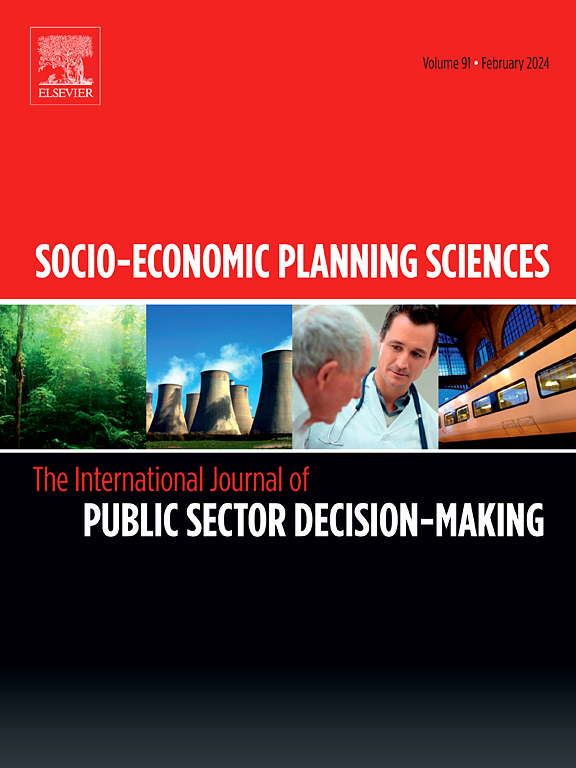Tourist trip planning with priority discipline
IF 5.4
2区 经济学
Q1 ECONOMICS
引用次数: 0
Abstract
In recent years, the tourism industry has experienced robust growth and plays a crucial role in the economy. Tourist congestion is a common issue that can significantly affect service quality. To maintain a high level of service in congested environments, many attractions offer priority services, such as the VIP services commonly offered in malls or amusement parks, which grant priority access to specific customers and allow them to reduce or even eliminate waiting times. By integrating such priority discipline, businesses can enhance the satisfaction of high-priority tourists while improving profitability. In this paper, a new tourist trip design problem that incorporates two priority discipline strategies is introduced, for the first time representing the priority discipline as constraints within the model to ensure that the solutions strictly adhere to the discipline. To address this problem, a branch-and-bound algorithm is proposed for solving small-scale instances, and an adaptive large neighborhood search algorithm is developed to efficiently handle large-scale instances, with a customized heuristic rule used to determine the visiting orders at each attraction. The effectiveness of both algorithms is demonstrated through experimental results. Finally, parameter analysis is conducted for the model, and several managerial insights are obtained.
旅游行程策划与优先学科
近年来,旅游业经历了强劲的增长,在经济中发挥着至关重要的作用。游客拥堵是影响服务质量的常见问题。为了在拥挤的环境中保持高水平的服务,许多景点提供优先服务,例如商场或游乐园通常提供的VIP服务,授予特定客户优先进入,并允许他们减少甚至消除等待时间。通过整合这些优先学科,商家可以提高高优先级游客的满意度,同时提高盈利能力。本文引入了一个包含两种优先规则策略的旅游设计新问题,首次将优先规则作为约束条件在模型中表示,以确保解决方案严格遵守该规则。为了解决这一问题,提出了一种分支定界算法来求解小规模实例,并开发了一种自适应大邻域搜索算法来有效地处理大规模实例,并使用自定义启发式规则来确定每个景点的访问顺序。实验结果验证了两种算法的有效性。最后,对模型进行了参数分析,得到了一些管理上的启示。
本文章由计算机程序翻译,如有差异,请以英文原文为准。
求助全文
约1分钟内获得全文
求助全文
来源期刊

Socio-economic Planning Sciences
OPERATIONS RESEARCH & MANAGEMENT SCIENCE-
CiteScore
9.40
自引率
13.10%
发文量
294
审稿时长
58 days
期刊介绍:
Studies directed toward the more effective utilization of existing resources, e.g. mathematical programming models of health care delivery systems with relevance to more effective program design; systems analysis of fire outbreaks and its relevance to the location of fire stations; statistical analysis of the efficiency of a developing country economy or industry.
Studies relating to the interaction of various segments of society and technology, e.g. the effects of government health policies on the utilization and design of hospital facilities; the relationship between housing density and the demands on public transportation or other service facilities: patterns and implications of urban development and air or water pollution.
Studies devoted to the anticipations of and response to future needs for social, health and other human services, e.g. the relationship between industrial growth and the development of educational resources in affected areas; investigation of future demands for material and child health resources in a developing country; design of effective recycling in an urban setting.
 求助内容:
求助内容: 应助结果提醒方式:
应助结果提醒方式:


